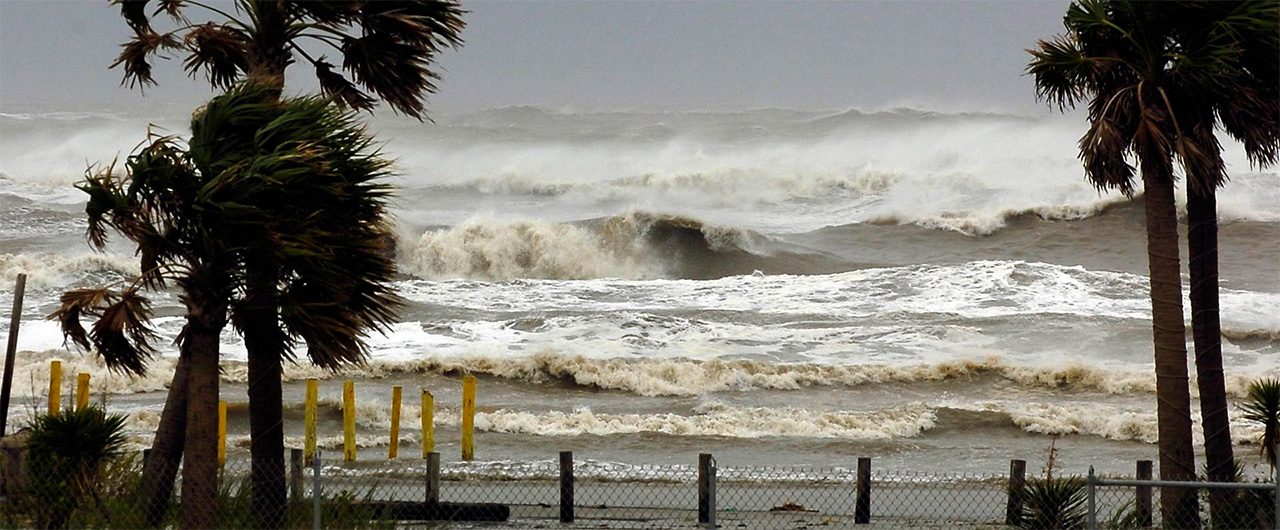Are You Prepared for Hurricane Season?
Each year, June 1 - November 30 marks Hurricane Season. Below is information to help you be prepared before and after a storm.
Knowing what to do in the days before a hurricane makes landfall can improve your peace of mind and reduce risk to your family and assets. Whether you choose to evacuate or ride out the storm at home, having the following resources in advance can be to your advantage.
- Emergency kit
- Location of the nearest storm shelters and various evacuation routes
- Reliable news and weather sources/apps
Prepare an emergency kit
Having supplies readily prepared can be your biggest asset in an emergency. Here's a short list of the most important things to pack:
- Foods that have a long storage life and require little to no cooking
- Water bottles / bottled water
- Medications and personal items
- Power sources, such as flashlights and radios, with multiple sets of batteries
- Extra clothing
- Safety items and a first aid kit
- Phone chargers
- Important documents like medical records, passports and personal identification
- Cash
It is also a good idea to keep your mobile phone close-by and fully charged. Remember to program your phone with any important numbers you may need during and after the storm.
The Mortgage Bankers Association Guide, Disaster Recovery: A Resource for Homeowners, provides important information on storm preparation, what to do after a storm, rebuilding and recovery assistance.
Locate storm shelters
If an emergency evacuation order is given, it is very important that you are familiar with the location of your nearest storm shelter and that you know multiple routes to get there. Your community will more than likely be evacuating at the same time, which means traffic will be extremely congested.
To find storm shelters, go to any of the following state Emergency Management Agency websites:
- MEMA - Mississippi Emergency Management Agency
- FDEM - Florida Division of Emergency Management
- Alabama EMA - Alabama Emergency Management Agency
- TDEM - Texas Division of Emergency Management
- TEMA - Tennessee Emergency Management Agency
- FEMA - Federal Emergency Management Agency
For evacuation routes and real-time road closures, visit any of the following state Department of Transportation websites:
- Mississippi State Department of Transportation
- Florida State Department of Transportation
- Alabama State Department of Transportation
- Tennessee State Department of Transportation
- Texas State Department of Transportation
Be ready to evacuate
As a hurricane approaches, be sure to check your local and state news frequently. If a hurricane is imminent, you may hear an order from local authorities to evacuate. Never ignore an evacuation order if one is given, as even well-built homes may not hold up against a hurricane's strong wind speed and high-level flooding.
If you decide to evacuate, unplug your appliances, and if you have time, turn off the gas and electricity. These actions will greatly reduce the risk of fire.
You may also hear an order to shelter in place. This usually occurs if there are significant driving concerns and staying at home may be safer than leaving. If you decide to remain at home and weather the storm, remain inside until you see or hear an official message that the hurricane has passed.
Prepare your home
It is wise to fortify your home in preparation of an incoming hurricane. FEMA recommends the following:
- Remove weak branches and trees that could fall on your house
- Install storm shutters to protect your windows or mount plywood into the window frames (including sliding glass doors)
- Ensure all exterior doors have at least three hinges and a dead bolt lock that is at least one inch long
- Replace old garage door tracks with units designed for wind and impact protection
- Seal any outside wall openings, such as vents, electrical outlets and garden hose bibs using a high-quality urethane-based caulk to help prevent water penetration
- If you live in a mobile home, have a boat or own a trailer, know how to secure it
You should also review your insurance policies, coverage and limits before a storm forms. It is important to note that both commercial and personal policies exclude flood coverage; a separate flood policy is necessary to properly insure your property. Both types of policies may exclude wind coverage, requiring an endorsement or a separate policy to cover damage resulting from wind.

